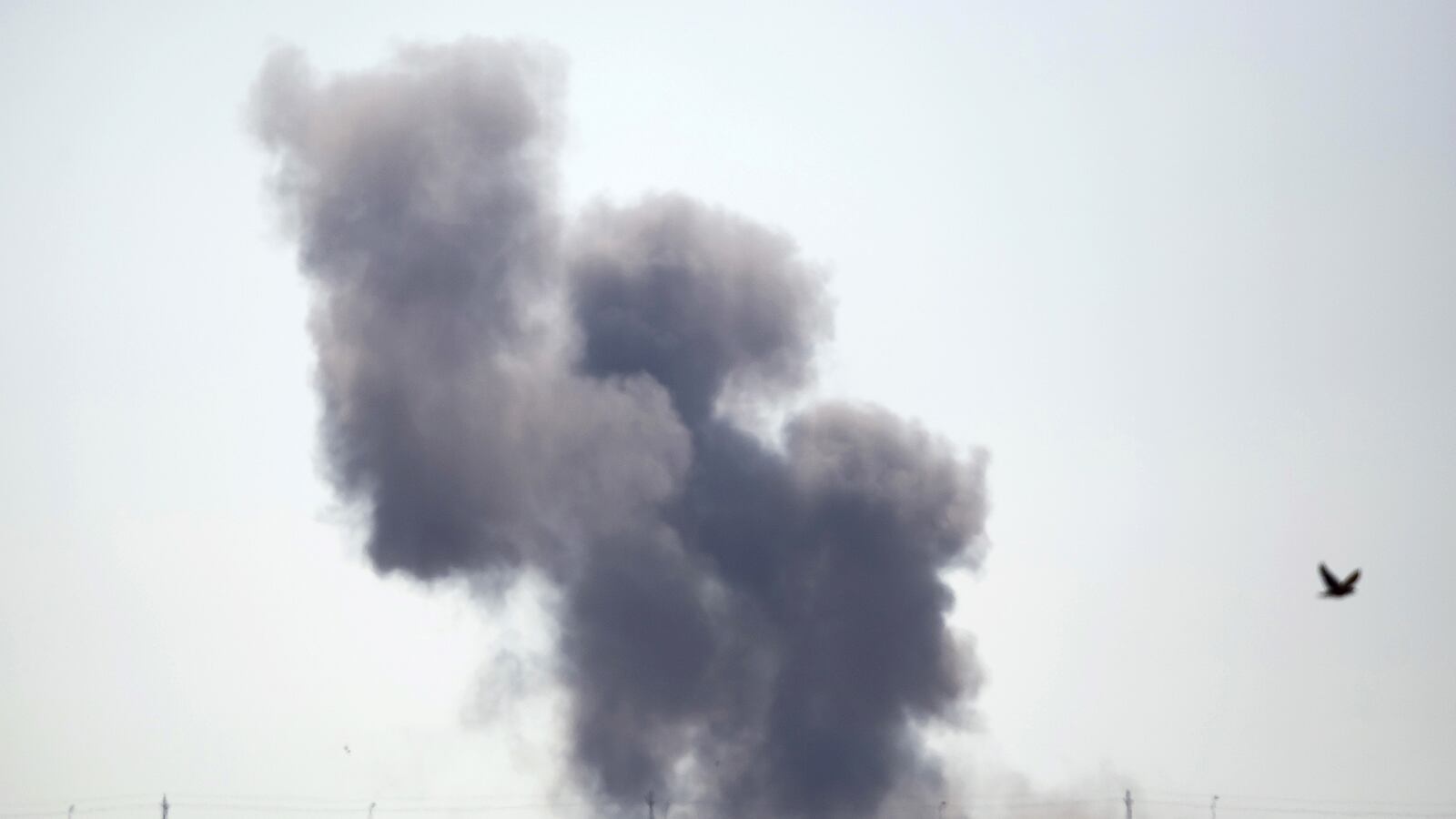The U.S. military is shipping more troops and more equipment to Egypt’s restive Sinai Peninsula after an ISIS attack that injured four American troops there.
In the last week, the Pentagon authorized the shipment of additional high-caliber weapons, surveillance towers, Bradley fighting vehicles, and medical equipment to bolster security for the 1,600 U.S. and UN troops tasked with ensuring Egypt and Israel abide by the 1979 peace treaty, The Daily Beast has learned. Much of that equipment is now en route in the northern edge of the peninsula.
An additional 75 American troops have also been given orders to head to Sinai.
Defense Secretary Ash Carter reportedly signed the order for the reinforcements and the defensive measures just hours before two improvised explosives injured four U.S. and two Fijian troops serving in the peacekeepers’ “North Camp,” two defense officials told The Daily Beast. That suggests that Pentagon higher-ups had concerns about the security of international forces even before the latest attack. Of the 1,600 troops at the old Israeli airport that sits just yards from the Israeli border, roughly 600 are Americans.
Defense officials also are exploring alternative means to keep the peace in Sinai, including depending more on drones, moving them to another part of the peninsula, and withdrawing U.S. troops. But officials stressed that no decision had been made.
Such discussion suggests that U.S. officials are wary of stationing troops at a base that over the last year has increasingly been surrounded by ISIS troops. Forces loyal to ISIS have pushed residents out of towns near the camp, making it all by impossible for everyday Egyptians to come near that area, even if they are from there. Many cannot get past the northern Egyptian town of Arish, about a 90-minute drive from the border.
The troops were conducting supply and recovery convoys when they were attacked September 4, the peacekeeping organization, known as the Multinational Force and Observers, said in a statement. The troops were transported to Israel for medical care.
“Even in the U.S. government, there is a debate whether troops are being harassed or targeted for something more severe,” said Eric Trager, an expert in Egyptian politics at the Washington Institute for Near East Policy, a U.S. research center. “Is ISIS trying to harass or kill U.S. personnel? Certainly the latest attack, in which six MFO personnel were injured, suggests that the latter is possible.”
Even before the attack, peacekeepers reduced the number of patrols because of the recent uptick in the number and violence of attacks.
On Sunday, the MFO announced it had “removed its personnel from a remote site in the Northeast Sinai as a result of an inability to safely resupply the site and continue conduct of its mission from that location.”
In June, a mortar round landed el-Gorah airport, near one of the camps. Shortly afterward, the Pentagon began discussing more defensive measures, the two defense officials said. Over the past year, it has grown increasingly difficult for supplies to reach the camp because of the deteriorating security situation.
U.S. officials first began discussing a reduction in the number of troops serving in the Sinai in the 1990s. But the worry at the time was the cost of deploying so many troops from the region. (According to the 2014 budget, the U.S. spent $82.6 million on this peacekeeping effort.)
But no administration ever really pushed to renegotiate the peacekeeping measures outlined in the 1979 peace treaty that kept the U.S. forces there.
That is, up until this year. While the American troops did not suffer life-threatening injuries during last week’s attack, the talks now have a different tenor “because we are now talking about a real threat to their safety,” as one defense official explained.
But again, White House and Defense Department officials have so far hesitated to make a decision.
While northern Sinai has always had a tinge of instability, its populace has changed dramatically in recent years. A local Islamist terror group called Ansar beit al Maqdis emerged after the 2011 Arab Spring, calling Israel its top target. In November 2014, the group announced it had rebranded itself as the Sinai branch of ISIS. These days, its main target has been the Egyptian military, which has launched a series of military campaigns against the group.
But ISIS in Sinai also has called the peacekeeping troops “infidels” that are there to support Israel. However, it was unclear whether ISIS saw such attacks as a means to embarrass the Egyptian military, an effort kill peacekeeping troops—or both.
Earlier this year, the U.S. installed counter-mortar radar to address the growing threat. The peacekeeping effort is led by the UN, but any U.S. change could have a big impact on the mission there.
“It would disappear if we were not there,” one defense official said.





